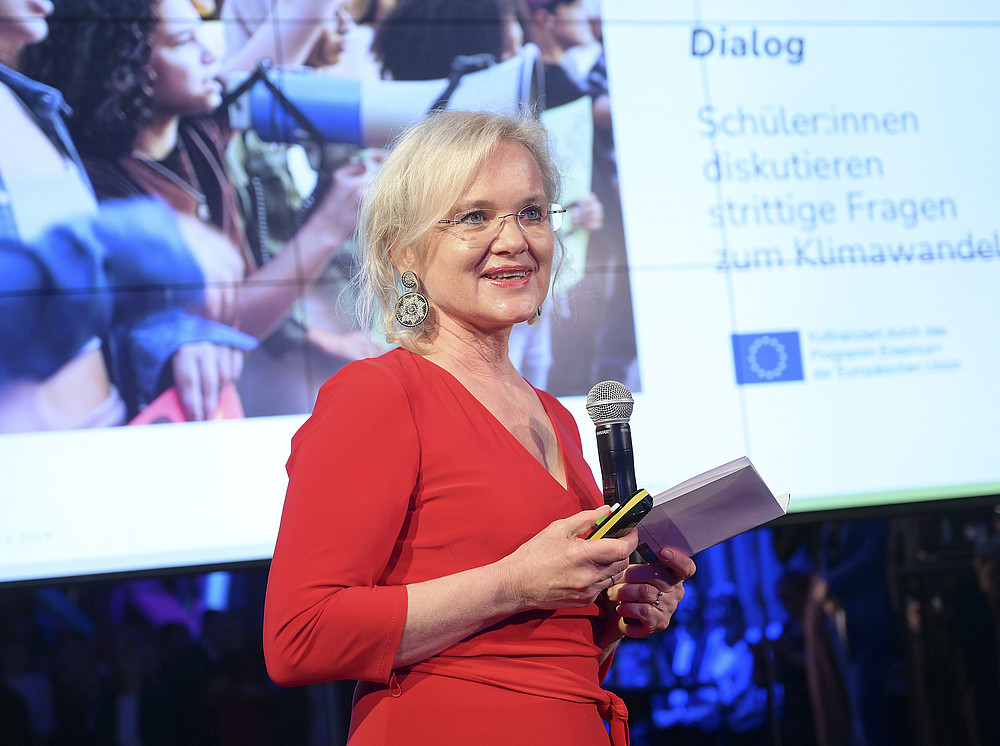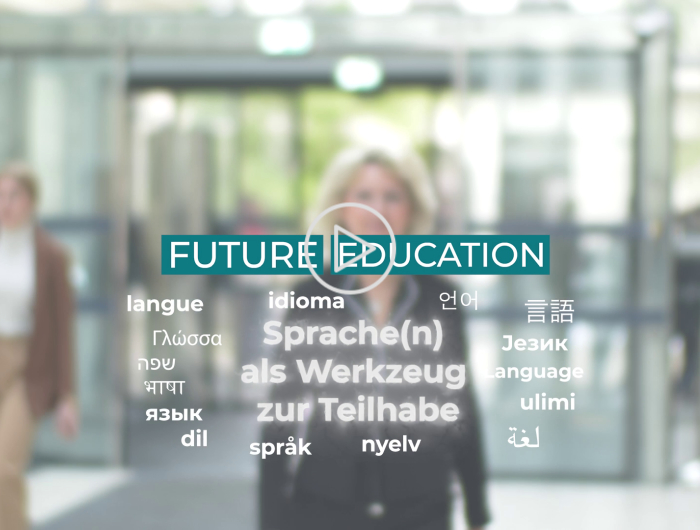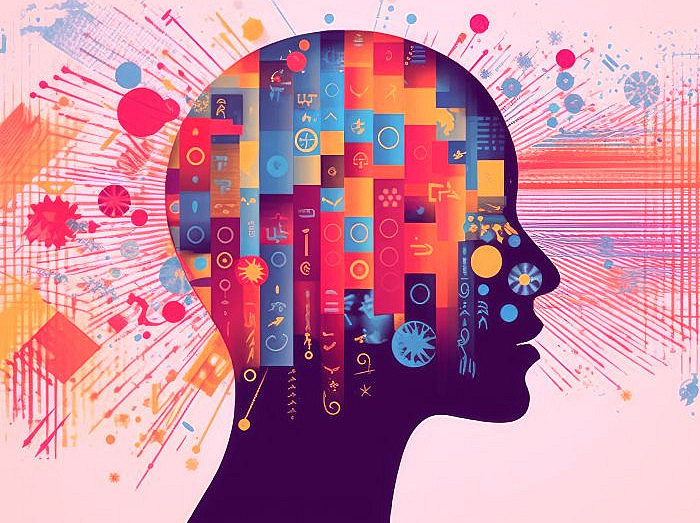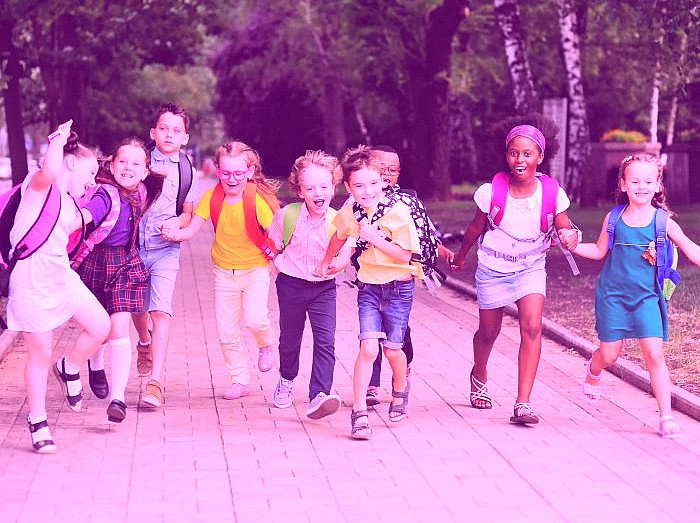In multilingual societies, equal linguistic participation means the possibility of an unrestricted say in all social domains. Equality in education can also only be achieved through equal linguistic participation. For education systems, this means recognizing and using all linguistic practices, resources and repertoires of learners, regardless of the prestige and status of individual languages.
Using languages as a tool for democratic participation also means recognizing manipulation through language and dealing critically with linguistically conveyed information. In educational contexts, it is therefore also important to focus on factors that enable reflected linguistic participation in media discourse in a multilingual society.
"DiaLog" project honoured with European Language Label
The project "DiaLog - Students discuss controversial questions on climate change" by Board and Language Cluster spokesperson Prof Sabine Schmölzer-Eibinger and Victoria Reinsperger has another success to celebrate. The University of Graz was awarded the European Language Label in the School Education I & II category for the project.
Read more: "DiaLog" project receives European Language Label
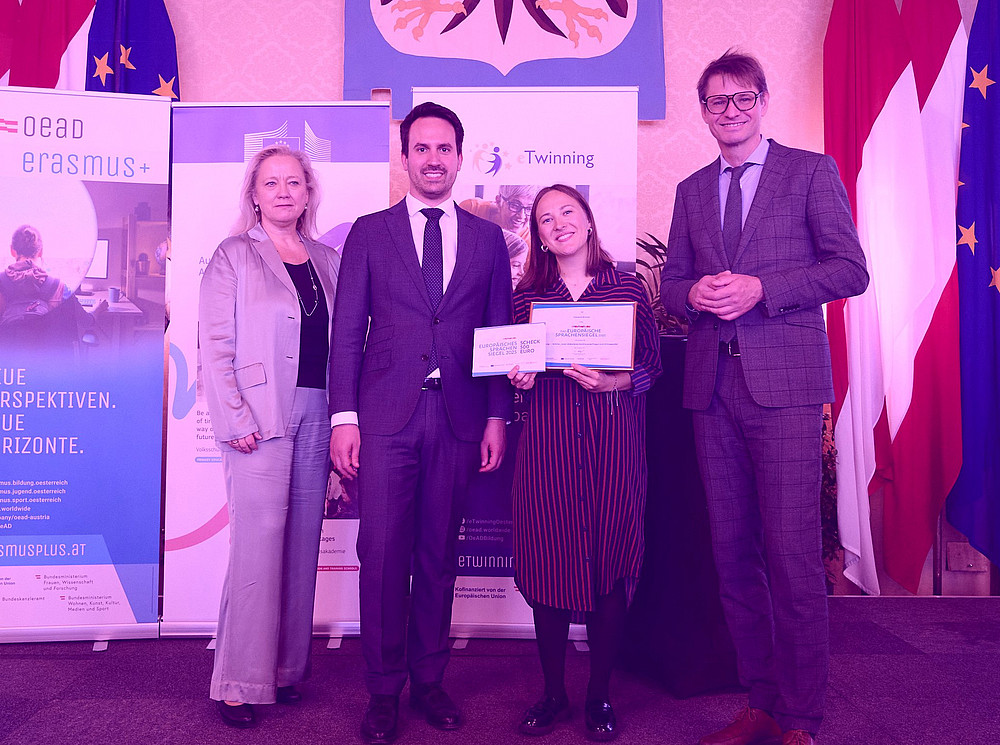

"It's important to me that students can recognise and refute fake news"
Not following the advice of the Minister of Education at the time - this is exactly what Stephan Schicker brought to specialised didactics research. He is a member of the FUTURE EDUCATION language cluster.
"DiaLog" project awarded the "Erasmus+" prize
The project "DiaLog - Students discuss controversial questions on climate change" by Board and Language Cluster spokesperson Prof Sabine Schmölzer-Eibinger and the two Language Cluster members Muhammed Akbulut and Victoria Reinsperger received the Austrian Erasmus+ and ESK Award 2024 in the field of school education in the category "Erasmus+ Cooperation Partnerships & Strategic Partnerships".
"You don't need to go to Panama to immerse yourself in a foreign world!"
How do deaf migrants communicate in Austria? Linguist and sign language researcher Julia Gspandl looked into this question in her dissertation. And found out some surprising things.
"I want to bring science into society"
Muhammed Akbulut has been researching and working at the University of Graz since 2016. In his habilitation project, he and his colleagues from the Center for Didactics of German as a Second Language & Language Education are developing a didactic concept to introduce students to scientific writing.
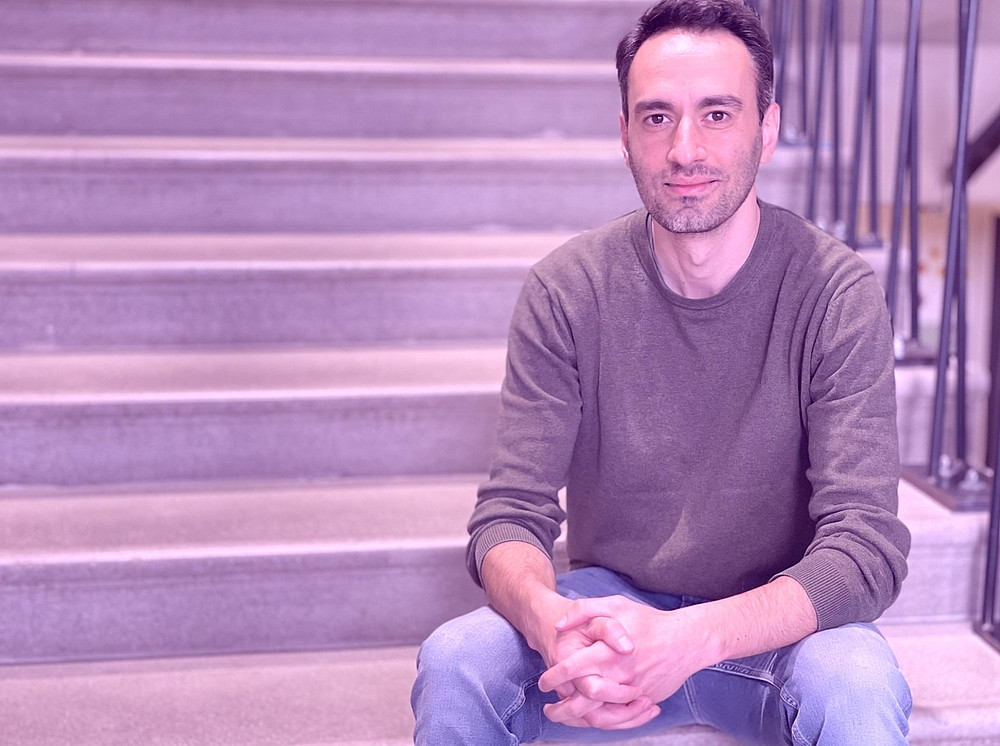
Video
Do you want to know why language is a future topic in education?
The cluster's researchers provide their answers
Research areas
Multilingualism has long been the norm in a society shaped by globalization and migration. In order to enable social participation in a multilingual society, linguistic diversity must be seen as a valuable social resource and the entire linguistic repertoire of individuals must be recognized and used. By promoting the multilingual skills of learners, educational institutions can contribute to more equal opportunities in the education system.
This interdisciplinary research cluster examines teaching and learning processes in the context of multilingualism in educational systems such as schools and develops didactic concepts across all educational levels, institutions and subjects with which the multilingual repertoire of learners can be promoted and used as a resource for educational success and social participation.
Education and research project "Multilingualism-promoting modules for French lessons"
Research project "Language switching costs in bilingual mathematics learning"
Literacy encompasses social, cognitive and linguistic skills that enable an individual to participate in all domains and discourses of a literate society. Those with literacy skills can therefore not only read and write, but also use written language as a tool for thinking, learning and social action.
Developing literary competence therefore also means acquiring the ability to use a written language as a tool for social and societal participation.
This interdisciplinary research cluster investigates the diagnosis, promotion and development of reading and writing skills in children and young people and develops didactic concepts for the promotion of literary competence in schools that enable social and societal participation.
Research project "Promoting social-emotional development in children with reading difficulties"
Socio-economic status is a key factor in the linguistic development of children and young people and is one of the main causes of educational disadvantage in the current education system. This particularly affects learners with family languages other than German, who are often further disadvantaged by a lack of appreciation of their migration-related and everyday multilingualism.
This interdisciplinary research network investigates factors that can increase the educational opportunities of children and young people regardless of their socio-economic status and family languages and enable educational equality through multilingual social participation.
Research project "Promoting social-emotional development in children with reading difficulties"
In the 21st century, learners are faced with the challenge of not only using texts as a source of information, but also examining and evaluating them in terms of factuality and truthfulness. As digital citizens, learners must therefore be prepared for a reflective approach to linguistically conveyed information in the media and be enabled to recognize manipulation through language.
This interdisciplinary research network develops concepts and methods for teaching that focus on a critical approach to linguistically mediated information in multimodal texts and thus empower participation in democratic discourses in an increasingly digital society.
Research project "Forensic Linguistic Authorship Analysis"
Education and research project "Fictional Science - Promoting critical text competence in dealing with fake news"
Podcast "Hör.Saal": "How do we learn and teach German?"
"How do we learn and teach German?" Gerhild Leljak, press officer at the University of Graz, asks this question in the 41st episode of the science podcast "Hör-Saal: 15 Minuten Forschung". The answers are provided by Sabine Schmölzer-Eibinger, Professor of German as a Second Language and Language Didactics at the University of Graz.
Behavioral training for children with reading and spelling difficulties
As part of the "Lubo-LRS" cooperation project, a project team led by Barbara Gasteiger-Klicpera from the University of Graz is developing a preventative program to promote social-emotional skills for pupils with reading difficulties.
Fictional Science: Promoting Text Competence in Dealing Critically with Fake News
How often do we trust fake news? Do we check content on social media before we share or like it? How can we recognize and refute fake news? Recognizing and countering fake news requires a critical look at texts and their language.
(Un)divided classes: Learning language with friends
How do friendly relationships affect language learning? The "(Un)divided classes" project investigated the connection between social networks and children's acquisition of German in linguistically heterogeneous primary school classes.
Cluster spokespersons
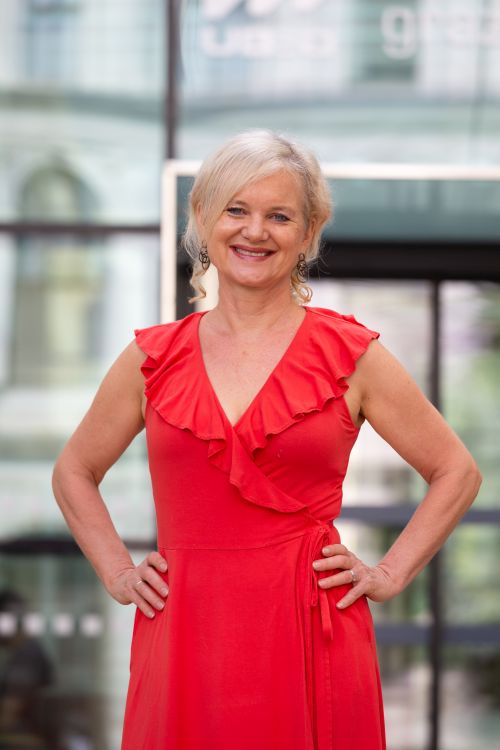
Univ.-Prof. Dr.phil. Mag. Sabine Schmölzer-Eibinger
+43 316 380 - 8393
Fachdidaktikzentrum Deutsch als Zweitsprache & Sprachliche Bildung
Bitte um Terminvereinbarung: silke.sulics@uni-graz.at.
http://www.sabineschmoelzer.at/
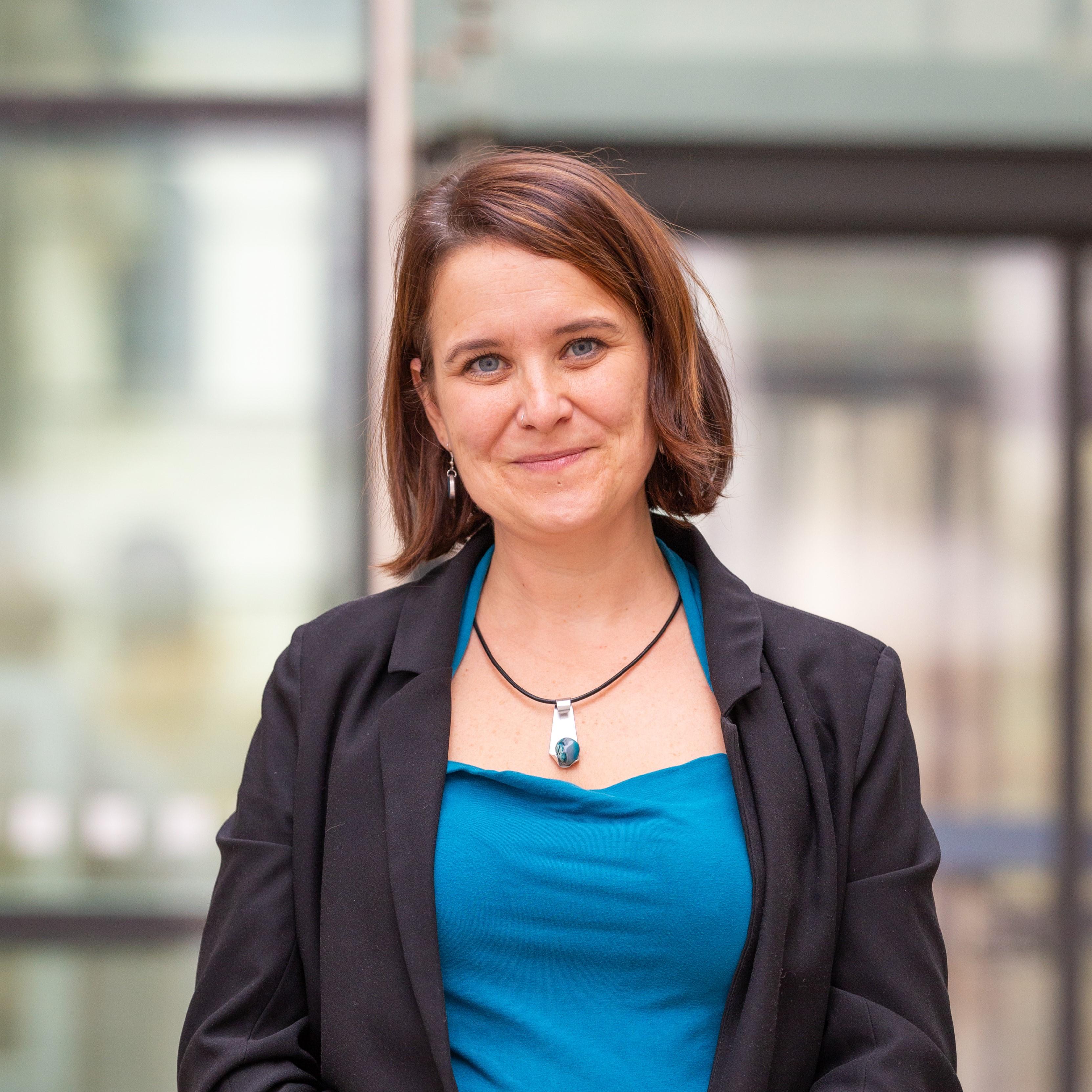
Assoz. Prof. Priv.-Doz. Mag. PhD Lisa Paleczek
+43 316 380 - 3660
Zentrum für empirische Inklusionsforschung
Dienstag 13:00-14:00
